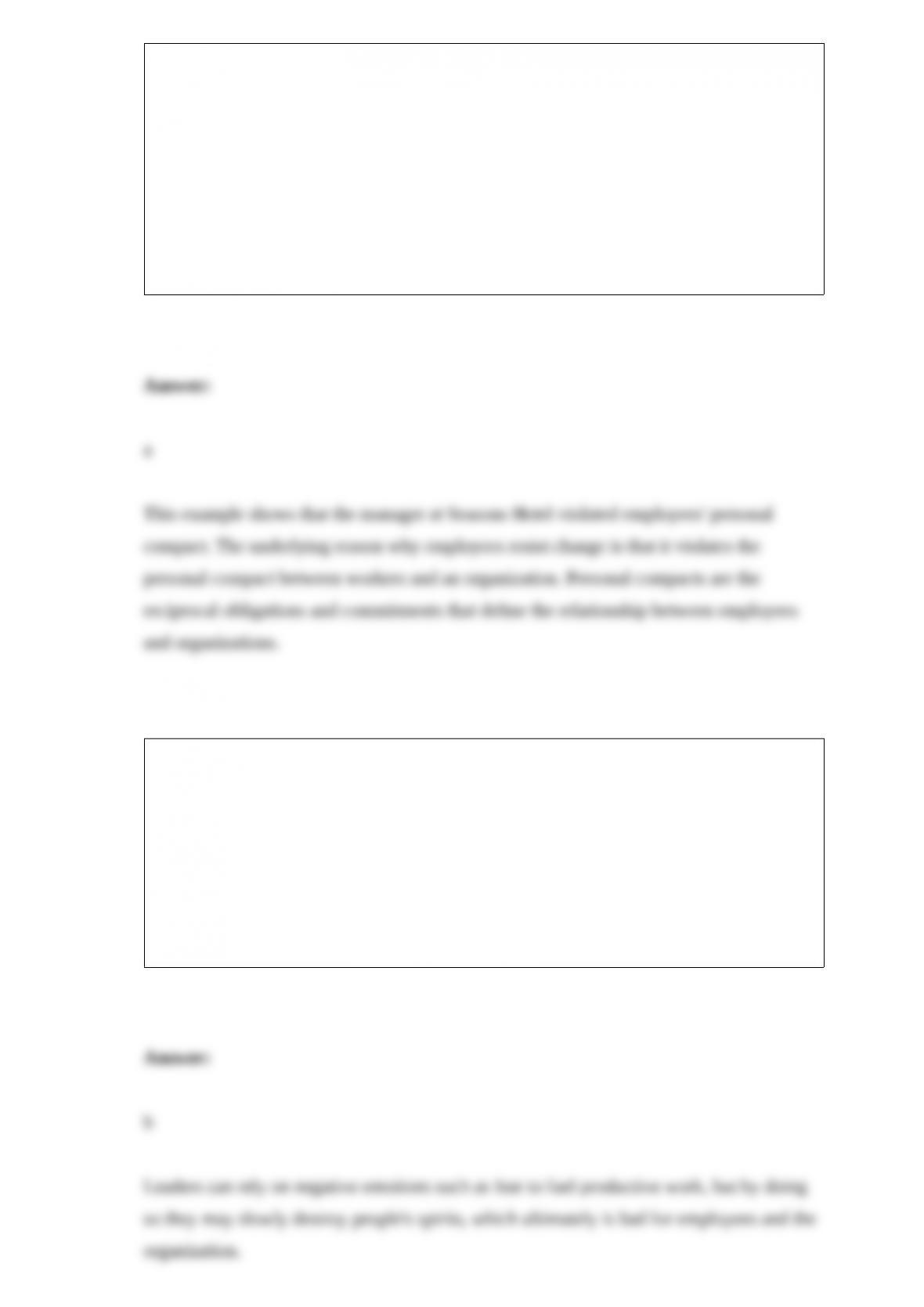How Motivation Theories Are Used In The Workplace
3.3 Motivation theories
Content theories are the earliest theories of motivation. Within the work environment they have had the greatest impact on management practice and The main content theories are Maslow s needs hierarchy Alderfer s ERG theory McClelland s achievement motivation and Herzberg s two-factorAccording to this theory individuals acquire three types of needs as a result of their life experiences. These needs are the need for achievement the Review the hygiene and motivators in the two-factor theory of motivation. Do you agree with the distinction between hygiene factors and motivators These motivation theories provide great understanding on how people behave and what motivates them.Motivation is a huge field of study. The three motivators are Achievement a need to accomplish and demonstrate own competence People with a high need for achievement prefer tasksMotivation is a driving factor for actions willingness and goals. Motivation is derived from the word motive or a need that requires satisfaction.Three Main Theories on Motivation are 1. Optimal-level Theory 2. Psychoanalytic Theory 3. Humanistic Theory The theories of motivation try to provide general sets of principles to guide our understanding of the urges wants needs desires strivings and goals that come under the headingMotivation Theory 1. Maslow s Theory of Need Hierarchy The behaviour of an individual at a particular moment is usually determined by his strongest need. Psychologists claim that as the basic needs are satisfied an individual seeks to satisfy the higher level needs.Theories of Motivation in Psychology. Hertzberg s Two-Factor Theory. Maslow s Hierarchy of Needs. Three-Dimensional Theory of Attribution. Motivating operations sometimes referred to as MOs does not predict future behaviors as would be the case with operant conditioning but rather looks toTheories of motivation are often separated into content theories and process theories. 3. Motivation - Lambert Deckers. This textbook provides a complete overview of motivation and emotion using an overarching organizational scheme of how biological psychological andMotivation theories are categories into two content and process theories. Content theories try to figure what motivates people. It is also known as needs theory. It is concerned with individual needs and goals.Work Motivation Theories. Motivational Theories in the Workplace. Herzberg Motivation Theory. 2. A satisfied employee is motivated from within to work harder and that a dissatisfied employee is not self- motivated. 3. Job satisfaction is not a unidimensional concept.
More recent theories of motivation include ERG Theory 1972 by Alderfer and the Equity Theory of Motivation 1963 by Adams. Content theories are also sometimes called needs theories. They look at motivation from the perspective of our needs and aspirations.Which motivation theory have you found to be most useful in explaining why people behave in a certain way Herzberg s dual-factor theory of job satisfaction and motivation A review of the evidence and a criticism. Personnel Psychology 20 369-389.What is Motivation Meaning Definition Nature Scope Importance and ways to motivate employee.Motivation-Hygiene Theory. Also known as the Two Factory theory Frederick Herzberg developed this in 1959. It postulates that different factors in the work environment result in either satisfaction or dissatisfaction Herzberg referred to these as hygiene factors.Motivation Hygiene theory and Victor Vroom s Expectancy theory. Although more valid. explanations of motivation have been developed these early theories are important because they. represent the foundation from which contemporary motivation theories were developed and.Motivation Theories Individual Needs. Motivation is a complex phenomenon. Several theorists including Abraham Maslow Frederick Herzberg David McClelland and Clayton Alderfer have provided theories to help explain needs as a source of motivation.Behavioral psychologists have developed various theories about motivation in an attempt to better understand and control human behavior. A basic understanding of three major motivation theories helps us to see how motivation can be applied in the workplace.Process theories explain how satisfaction comes about as opposed to what causes motivation. If employees perceive an inequity in their input-outcome ratio compared to other employees they become dissatisfied and less motivated. theories of motivation.The motivational theories are very different from the perspective of human beings and their behaviors. Humans have different perceptions and needs about how they will satisfy those basic needs. Some of the important theories of motivation are as follows13. Motivation theory is not synonymous with behavior theory. The motivations are only one class of determinants of behavior. While behavior is almost always motivated it is also almost always biologically culturally and situationally determined as well.
Dozens of theories of motivation have been proposed over the years. Here are 5 popular theories of motivation that can help you increase workplace This theory implies that for the happiest and most productive workforce you need to work on improving both motivator and hygiene factors.Motivation Theories. Read and translate the text and learn terms from the Essential Vocabulary. 3. What motivation theory captures all the complexity of motivation 4. How does Maslow s Hierarchy of Needs Theory explain what drives human behavior This article has three theory namely Theory of sacrifice Theory of Fear and Theory of Pain. Read the aspect carefully. Understanding the power of fear is the first step to understanding motivation. The power of fear does two things for you 1. Prevents you from taking action.Work motivation theories can greatly improve productivity when applied correctly in the workplace. Keep reading to discover three of them Therefore it s really important that you remain motivated at work. That s where these three work motivation theories come into play.The cognitive theories of motivation include the Expectancy Theory and the Goal-Setting Theory. The Expectancy Theory of Motivation explains why and how an individual chooses one behavioural option over others.Motivation Theories - Alderfer s ERG Theory. Alderfer takes Maslow s theory a little further by suggesting that the first two needs on Maslow s Hierarchy are Existence needs the second two are needs for Relatedness and the third pair of needs are growth-oriented needs.There are several theories that explain motivation as a result of these needs. Needs theories distinguish between primary needs such as food sleep and other biological needs and secondary psychological needs that are learned and vary by culture and by individual.Motivation-hygiene theory. Psychologist Frederick Herzberg developed this theory after interviewing engineers and accountants. Given that there are both high and low factors for both hygiene and motivators a workplace has 4 outcomes with this theoryStart studying motivation Theories. Learn vocabulary terms and more with flashcards games and other study tools. -think of motivation as the forces within the person that act as a catalyst to stimulate and drive them to achieve goals driving force of human action -the behaviour is energizedMotivation theory is thus concerned with the processes that explain why and how human behavior is activated. The broad rubric of motivation and The ERG theory is an extension of Maslow s hierarchy of needs. Alderfer suggested that needs could be classified into three categories rather than five.
Unit 3 Organisations and Behaviour Assignment CAPCO Ltd
Funny Motivational Quotes Work 39 Short Motivational

Best Free Movie Websites Without Sign Up in 2021

Project Management Application of Motivation Theories

Maslow s Hierarchy of Needs - Merbeck Consulting

Organizational Socialization 3 Stages of Organizational

BUA 687 Test Get 24 7 Homework Help Online Study Solutions

Maslow s Hierarchy of Needs in the Public Relations